detail profile ruma guha thakurta
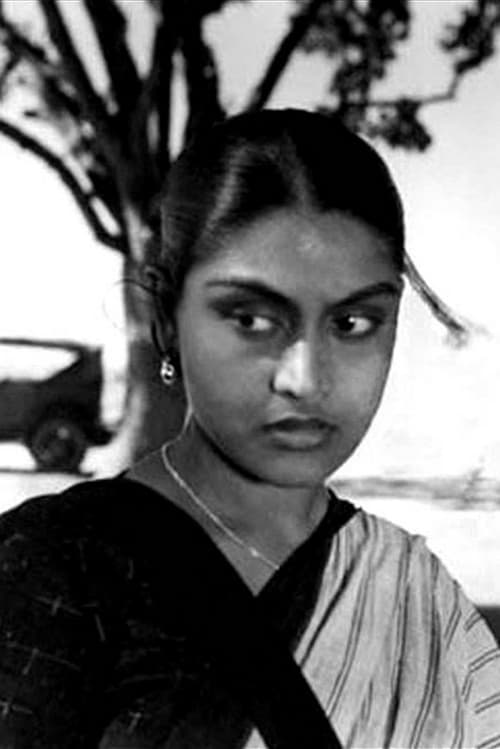
Ruma Guha Thakurta
Ruma GuhaThakurta
atau dikenal sebagai
Riwayat Hidup
Ruma Guha Thakurta was born on 3 November 1934 to Satyen Ghosh (Monty Ghosh) and singer Sati Devi who was a trained vocalist and Bijoya Ray's, wife of Satyajit Ray, elder sister's daughter.
Ruma Guha Thakurta began as a dancer, actress and singer primarily associated with Bengali language films.
She founded Calcutta Youth Choir in 1958 after her divorce.
She got married to eminent singer, Kishore Kumar, in 1951.
Info Pribadi
Peran Yang Di Mainkan Ruma Guha Thakurta
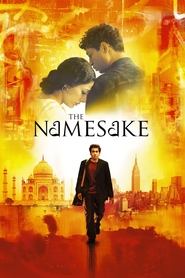 After moving from Calcutta to New...
After moving from Calcutta to New...The Namesake 2006
After moving from Calcutta to New York, members of the Ganguli family maintain a delicate balancing act between honoring the traditions of their native India and blending into American culture. Although parents Ashoke and Ashima are proud of the sacrifices they make to give their children opportunities, their son Gogol strives to forge his own identity without forgetting his heritage.
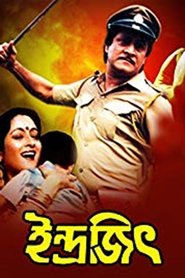 Biswajit is a renowned barrister He...
Biswajit is a renowned barrister He...Indrajit 1992
Biswajit is a renowned barrister. He has two younger brothers, named Indrajit and Abhisek. He along with his two younger brothers creates a very happy family. Indrajit joins the police force by the recommendation of MLA Suprakash Sanyal. Indrajit is a honest, sincere and brave police officer, on the other hand Abhisek slowly enters into a wrong path. Indrajit does not concentrate properly in family. So he has some conflicts and differences with his wife. At this juncture a rape case investigation is handed over to him. A member of the Sanyal's gang named Raja has done that crime. So Indrajit arrested him and placed the file before court. When the trial is almost at the end of its proceedings, then Sanyal's men kidnapped Indrajit's son. Release of Raja is their only demand and they convey it to Indrajit. On the other hand Sanyal's daughter Rupa loves Abhisek. So she helps Indrajit. After refusing the demand of Sanyal, Indrajit defeats all evil forces and reveals Sanyal in front of ...
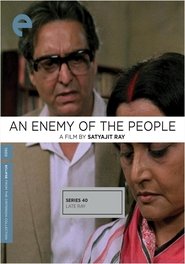 Ashoke Gupta is an idealistic doctor...
Ashoke Gupta is an idealistic doctor...An Enemy of the People 1990
Ashoke Gupta is an idealistic doctor working in a town near Calcutta. He discovers that the water at a popular temple is the source of an outbreak of typhoid and hepatitis. In order to save lives, he risks his career to try and call attention to this polluted water source, while a local group of building contractors attempt to discredit him in various ways.
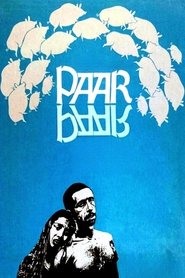 When a Dalit wins the elections...
When a Dalit wins the elections...The Crossing 1984
When a Dalit wins the elections for mayor in his small village in northeastern India, deadly rioting forces an impoverished couple to escape to Calcutta where they can hopefully find work. Instead, they end up sleeping on the streets until they have a chance at earning a little income -- a man has asked them to take his herd of pigs across a fast-moving river. The current is dangerous, and worse, the wife is pregnant and this would not be an easy task even if she were not. Undaunted and desperate, the couple accept the job and enter the river to face their destiny.
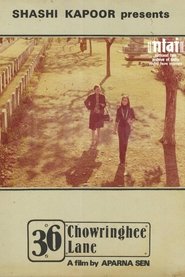 After the marriage of her niece...
After the marriage of her niece...36 Chowringhee Lane 1981
After the marriage of her niece, an Anglo-Indian school-teacher, Violet Stoneham, lives a lonely life in her single room flat located at 36 Chowringhee Lane in Calcutta. When a former student starts visiting her with her boyfriend, Violet welcomes them eagerly.
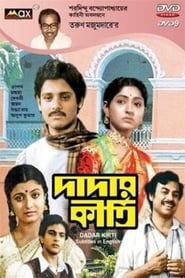 Advocate Nivaran Chatterjee lives a wealthy...
Advocate Nivaran Chatterjee lives a wealthy...Dadar Kirti 1980
Advocate Nivaran Chatterjee lives a wealthy lifestyle in a small town with his wife, and three sons. His first son is married, while his second son, Kedarnath, who suffered a head injury, is a little senile, and his third son, Amarnath, is a brilliant student. Amarnath falls in love with Beeni Mukherjee, a good student with an elder dominating sister, Saraswati, who is brilliant. Kedar is attracted to Saraswati but lacks the courage to approach her. Then some of his friends introduce him as a brilliant student and athlete to Saraswati's dad, who approves of him. Kedar meets with Saraswati, who also approves of him, and both are slowly drawn to each other. It will not be long before Saraswati finds out that Kedarnath is a fraud, will give up on him, and will get ready to marry a wealthy Bhagalpur-based man of her father's choice.
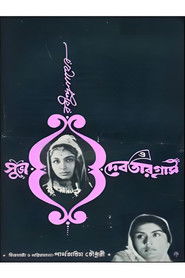 Subho O Debotar Gras was a...
Subho O Debotar Gras was a...Subho O Debotar Gras 1964
Subho O Debotar Gras was a film in 2 parts- one was the story of the deaf-mute Shubha who features in a short story by Rabindranath Tagore & the second part was based on the poem titled "Debotar Gras", in which Tagore describes the frantic desire of a dip in holy waters during the Ganga Sagar pilgrimage as well as the selfishness of the pilgrims.
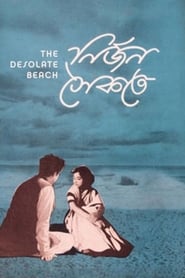 A writer meets five widows on...
A writer meets five widows on...The Desolate Beach 1963
A writer meets five widows on a train to Puri. As the six lives begin to intertwine, the theme of the taboos of widowhood emerge; but so, too, does a philosophy of life and hope for the future. The performers collectively won Best Actress at India's National Film Awards in 1964.
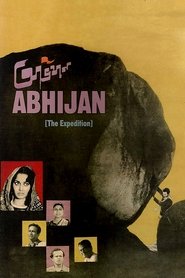 The story revolves around a North...
The story revolves around a North...The Expedition 1962
The story revolves around a North Indian taxi driver, Narsingh, who attempts to reinvent his life by visiting his native place, but instead gets embroiled in a local Marwari businessman's smuggling and human trafficking business. Preserved by the Academy Film Archive in 2001.
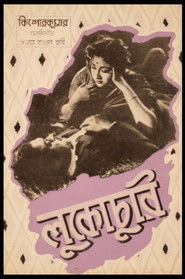 Shankar and Buddhu are identical twins...
Shankar and Buddhu are identical twins...Lukochuri 1958
Shankar and Buddhu are identical twins. Shankar, unbeknownst to Buddhu, has found love with a painter; Buddhu meanwhile falls in love with the painter’s sister, who works at his office. As neither sister knows her lover has a twin, and Buddhu is unaware of Shankar’s romance, confusion ensues.
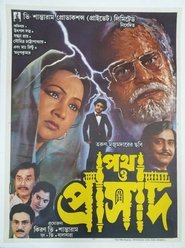 Nilu and his mother Dipannita are...
Nilu and his mother Dipannita are...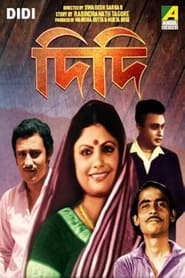 A film by Swadesh Sarkar
A film by Swadesh Sarkar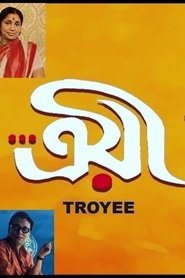 Troyee is the story of a...
Troyee is the story of a...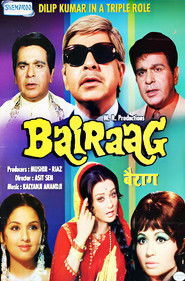 Dilip Kumar in Triple Role
Dilip Kumar in Triple Role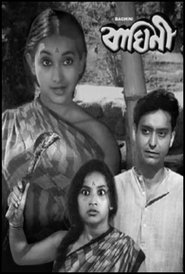 Dugga joins Chiranjib in his liquor...
Dugga joins Chiranjib in his liquor...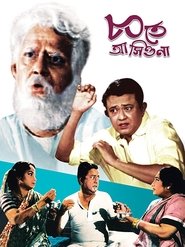 Illtreated and disrespected by his sons...
Illtreated and disrespected by his sons...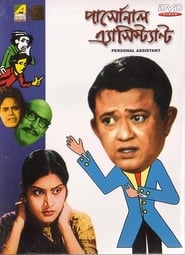 Ramapoda Dutta gets a job in...
Ramapoda Dutta gets a job in...